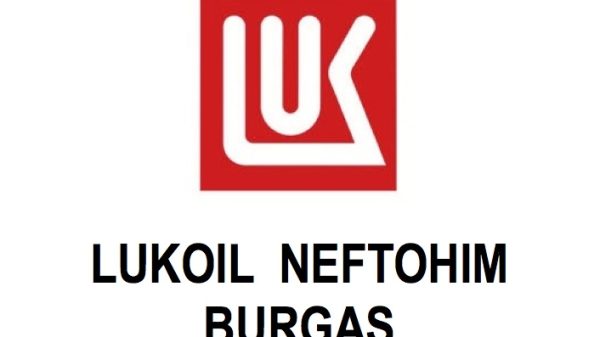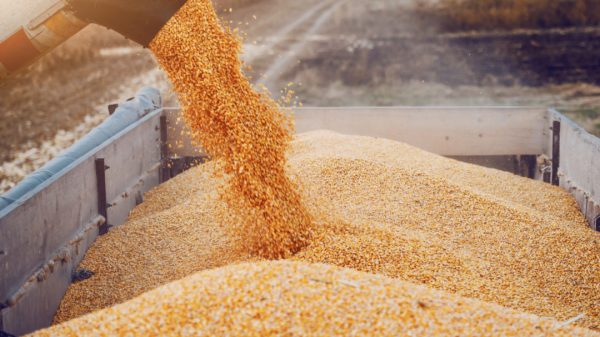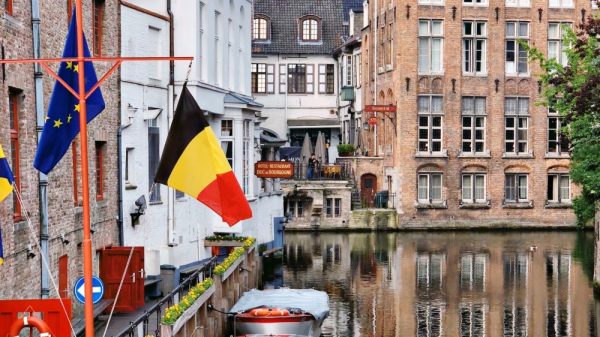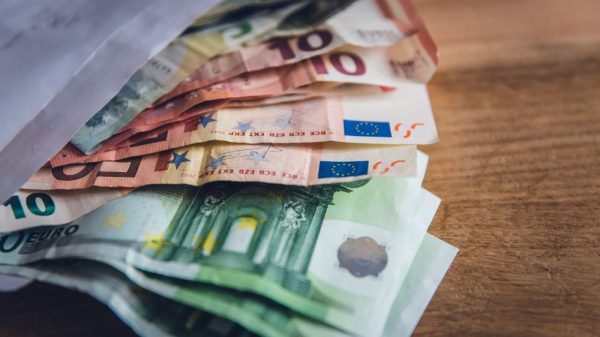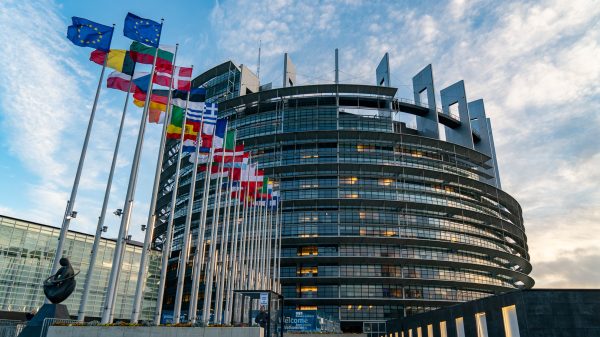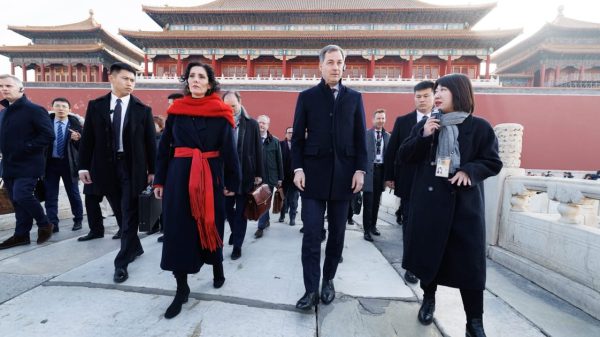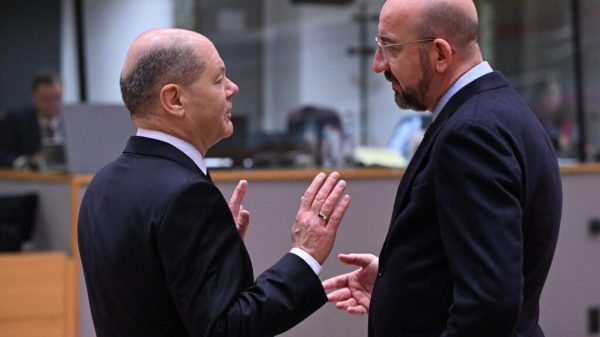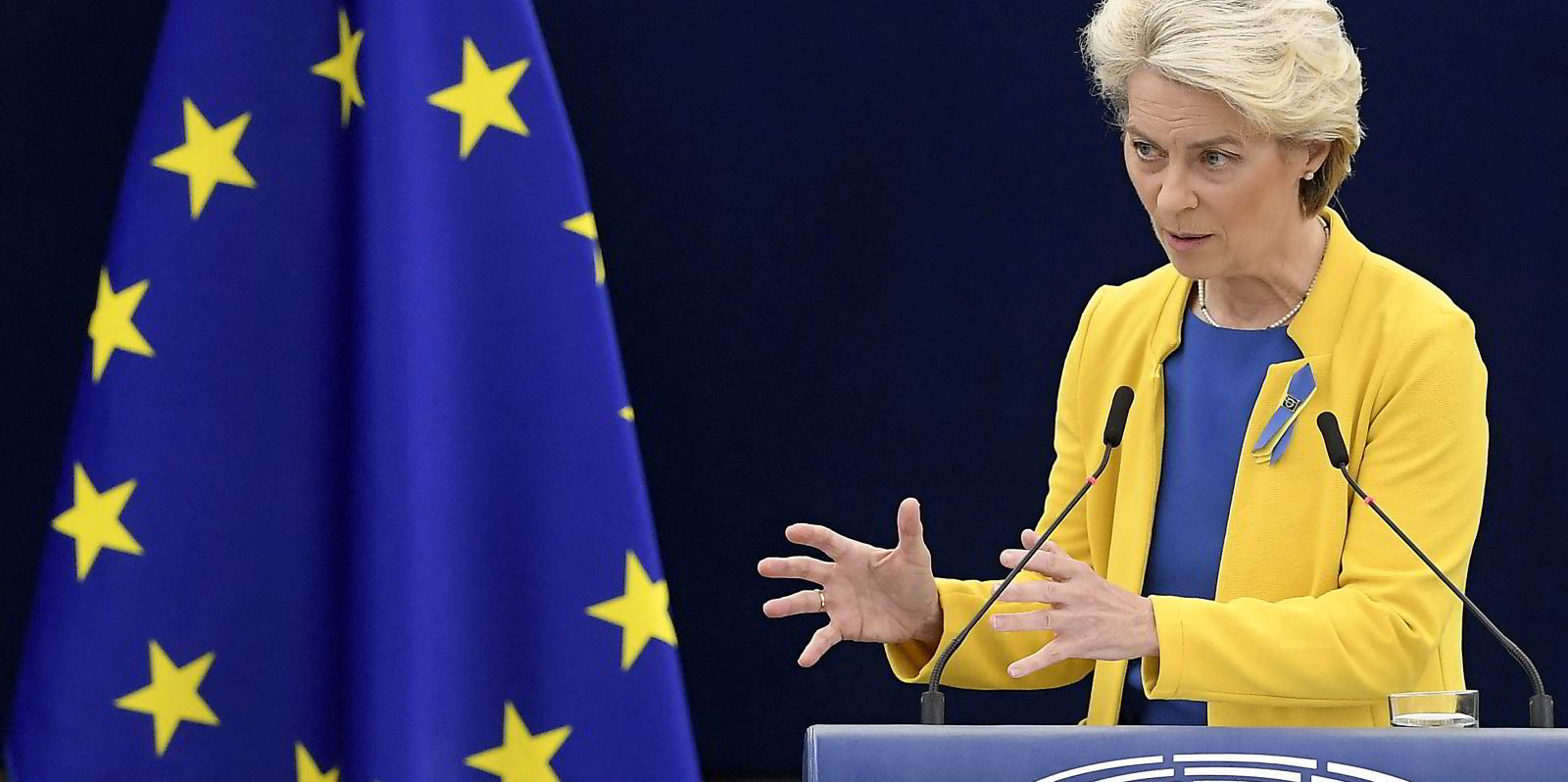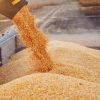EU solidarity with Ukraine was the overwhelming focus of European Commission head Ursula von der Leyen’s State of the Union address on 14 September, as the war reached a potential turning point. With a lightening Ukrainian counteroffensive liberating Kharkiv, von der Leyen clearly needed to send a strong message of support. But the Ukraine and energy crisis-dominated speech neglected other pressing challenges at a summit intended to set out the bloc’s broader policy agenda.
Cybersecurity, green transport and long-term environmental solutions received only passing mention, raising questions over the progress to come on these crucial issues. However, the food crisis was the most glaring oversight, particularly given the energy crisis’s impact on agri-food producers and consumers. Over the difficult months ahead, the EU must ensure that its interventions go further than this speech suggests, crucially by adapting and innovating its agri-food policy to meet unprecedented challenges.
Energy crisis fuelling food insecurity
AdvertisementRightly connecting the two crises, Josep Borrell, the EU top diplomat, stressed to reporters at September’s UN General Assembly that the “the high energy and food prices caused by the war have generated an incipient financial crisis.”
In the EU, skyrocketing fertiliser and electricity prices linked to Russia’s weaponisation of its gas exports – an essential input for fertiliser production directly linked to electricity prices – are devastating agri-food producers, while record-breaking droughts over the summer have slashed production of key food products. Runaway inflation is leaving a growing number of companies in an existential struggle, with consequences ranging from temporary production freezes and staff layoffs to permanent closures according to COPA-COGECA, the EU farmers’ association.
In Belgium, a staggering 4 out of 10 food firms risk going under, putting into sharp relief the current fragility of the agri-food industry. Small and medium-sized enterprises (SMEs) face the greatest threat, with producers of the most energy-intensive foods – including dairy products – hit particularly hard. Given this deteriorating situation and industry warnings that the current pressures on the agri-food system could linger into next year, the EU must provide an unprecedented level of support to the sector.
EU food policy playing with fire
Yet the EU remains stubbornly committed to its “Farm to Fork” (F2F) strategy, whose aim to build a sustainable, healthy European food system is undermined by misguided policies. F2F’s organic farming targets – including halving chemical pesticide use, cutting synthetic fertiliser by 20% and farming 25% of agricultural land organically by 2030 – reveal an ideological, scientifically dubious approach that would significantly cut the bloc’s food production at a time of shortages and inflation.
MEPs harshly criticized the EU Commission in a recent meeting for failing to acknowledge the devastating impact its 2030 pesticides target would have on food supply, an outcome exposed by the Commission’s own Joint Research Centre (JRC) in a report published last year. The JRC study found that implementing F2F in its current form would cut EU cereal, vegetable, meat and milk production by 15%, 12%, 14% and 10%, respectively.
The leading candidate for an EU-wide Front of Package (FOP) food labelling system – another key pillar of F2F – threatens to compound the severe challenges facing European farmers. France-backed Nutri-Score aims, like all FOP systems, to improve dietary health and tackle obesity by providing shoppers with nutritional value information. Yet its flawed algorithm, which scores food products using an A-to-E, green-to-red grading system based on a 100ml/g serving, fails to assess food healthiness in a nuanced and comprehensive manner.
Nutri-Score penalises sugar, sodium and fat content without factoring in a product’s appropriate portion size and broader nutritional benefits when consumed in moderation as part of a balanced diet. This is how certain European staples, such as olive oil, parma ham and Roquefort cheese, receive unfairly harsh “D” and “E” Nutri-Scores, while ultra-processed foods like Chocapic cereal are given a misleading “A,” which threatens to add significant economic harm to agri-food producers already struggling with the energy crisis and drought-induced crop losses.
Innovation as a way out of a crisis
To weather the current food crisis while making progress on the long-term green transition, the EU must adapt its rigid policies and support agricultural innovation. Tenuous signs of hope are emerging from member states, but the Commission’s “come to Jesus” moment is yet to arrive.
Zdeněk Nekula, Czech Agriculture Minister and current Chair of the EU Agrifish Council, has risen as a leading proponent for change in Brussels, recently advocating the use of new genomic techniques (NGTs), which can genetically engineer crop characteristics vital to reliable productivity, including drought tolerance. This idea has been warmly received by the agricultural ministers of Sweden, Lithuania, Netherlands, Malta, Ireland, Italy, Hungary, Romania and Belgium, as well as COPA-COGECA.
But to unleash the potential of NGTs for sustainably boosting agricultural production, the EU needs to alter its overly restrictive crop biotechnology regulations that hinder crop breeding innovation and fuel brain drain. The Commission needs to come to its senses and ensure its ongoing reevaluation of this legislation results in the commercialization of gene-edited crops as soon as possible.
To keep its agriculture at the global forefront, the EU should seek inspiration from countries such as Argentina, which in 2015 became the first country to exempt most types of gene-edited crops from genetically engineered crop regulations, accelerating its agricultural innovation, supporting economic development and inspiring similar regulatory innovations in Brazil, Israel and the United States.
Given the devastating impact that energy inflation is having on its agri-food industry and citizens, the EU must ensure that von der Leyen’s State of the Union address does not reflect its forthcoming action to resolve the interlinked food and energy crises. As it navigates the difficult months to come, Brussels must adapt its agricultural policies to protect producers and consumers, while pursuing a science-based approach that mobilises innovative technological solutions to promote both food security and long-term sustainability.





